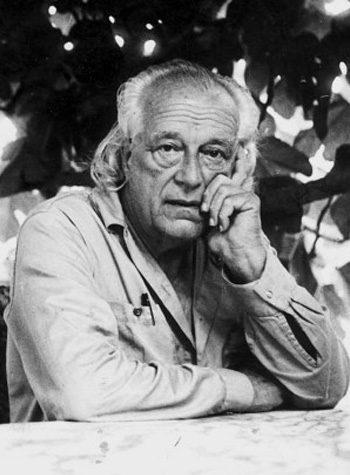Rafael Alberti

Rafael Alberti, (born Dec. 16, 1902, Puerto de Santa María, Spain—died Oct. 28, 1999, Puerto de Santa María), was a Spanish writer of Italian Irish ancestry, and regarded as one of the major Spanish poets of the 20th century. Alberti studied art in Madrid and enjoyed some success as a painter before 1923, when he began writing and publishing poems in magazines. His first book of poetry, Marinero en tierra (1925; “Sailor on Land”), recalled the sea of his native Cádiz region and won a national prize. A member of the so-called Generation of 1927, Alberti helped to celebrate the tercentenary of Luis de Góngora in 1927, and Góngorist influence is apparent in the work published in that period, El alba del alhelí (1927; “The Dawn of the Wallflower”) and Cal y canto (1928; “Quicklime and Song”).
With his next book, the somewhat Surrealist Sobre los ángeles (1929; Concerning the Angels), Alberti established himself as a mature and individual voice. In the 1930s Alberti’s work became overtly political; he wrote plays, traveled widely, joined the Communist Party—from which he was later expelled—and founded a review, Octubre. He fought for the Republic in the Spanish Civil War and afterward fled to Argentina, where he worked for the Losado publishing house and resumed both his poetry and his earlier interest, painting. In 1941 he published a collection of poems, Entre el clavel y la espada (“Between the Carnation and the Sword”), and in 1942 a book of drama, prose, and poetry about the Civil War, De un momento a otro (“From One Moment to Another”). He published a collection of poems inspired by painting, A la pintura (1945; “On Painting”), and collections on maritime themes, such as Pleamar (1944; “High Tide”). After 1961, he lived in Italy, returning to Spain in 1977. Alberti’s autobiography, La arboleda perdida (The Lost Grove), was published in two volumes, the first in 1942 and the second in 1975.
